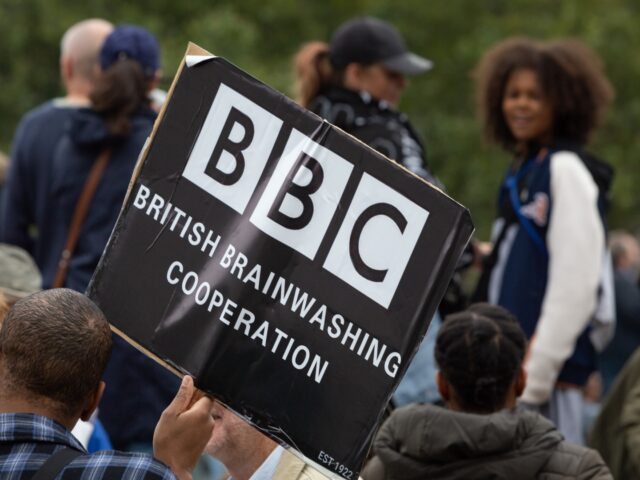Britain’s left-liberal public broadcaster, the BBC, announced on Monday the formation of a new “disinformation” unit in its newsroom to counter alleged conspiracy theories and fake news.
The British Broadcasting Corporation (BBC), which is funded through a mandatory tax on those watching live television on penalty of fine or imprisonment, announced that its news division will feature a new team designed to dispel disinformation dubbed “BBC Verify”.
The CEO of BBC News, Deborah Turness, said that BBC Verify will be made up of about 60 journalists “who will form a highly specialised operation with a range of forensic investigative skills and open source intelligence” to be deployed to provide fact-checking, video verification, counter disinformation, and “crucially – explaining complex stories in the pursuit of truth.”
BBC’s Disinformation Correspondent Marianna Spring, said that “mistruths can cause really serious harm to society”. Spring, who is set to host a BBC podcast dubbed ‘Marianna in Conspiracyland’, said that she has set up some “undercover accounts” on social media to track “polarisation online” such as what is being recommended to users.
The millennial journalist went on to say that she is currently investigating “the UK’s conspiracy theory movement”, claiming that it has “evolved and intensified” since the Chinese coronavirus crisis. Spring singled out “alternative media” as being a driver of so-called conspiracy theories.
“I’m looking at the way alternative media is funded, I’m looking at its impact on local communities, I’m looking at its connections with far-right figures and also its foreign links,” she said.
“Could January 6th or the German coup attempt we saw there ever happen in the UK?” Spring questioned.
The BBC, which has been undergoing restructuring in order to cut costs amid threats from the government to end the controversial licence fee from the public, is perhaps attempting to prove its value to politicians in Westminster, who have repeatedly expressed a desire to monitor the spread of ‘disinformation’ on the internet.
During the pandemic, for example, the government reportedly tasked the Defence Cultural Specialist Unit (DCSU) of the army’s 77th Brigade to counter and track alleged conspiracy theories about the coronavirus vaccines.
The British public broadcaster’s own coverage during the pandemic was called into question by Twitter owner Elon Musk during an interview with BBC journalist James Clayton last month.
“Does the BBC hold itself at all responsible for misinformation regarding masking and the side effects of vaccinations and not reporting on that at all?” Musk queried, to which Clayton replied that the interview was not about the BBC.
Even prior to the Wuhan virus, the broadcaster consistently faced accusations of having a political agenda — despite its charter requiring neutrality. In 2019, for instance, a poll from Norstat found that nearly two-thirds of the British public thought that the BBC was biased.
A separate poll that same year found that only 44 per cent of Britons had faith in journalists at the BBC to be truthful in their reporting, compared to 48 per cent who said they did not trust its news division of being accurate.
Follow Kurt Zindulka on Twitter here @KurtZindulka

COMMENTS
Please let us know if you're having issues with commenting.